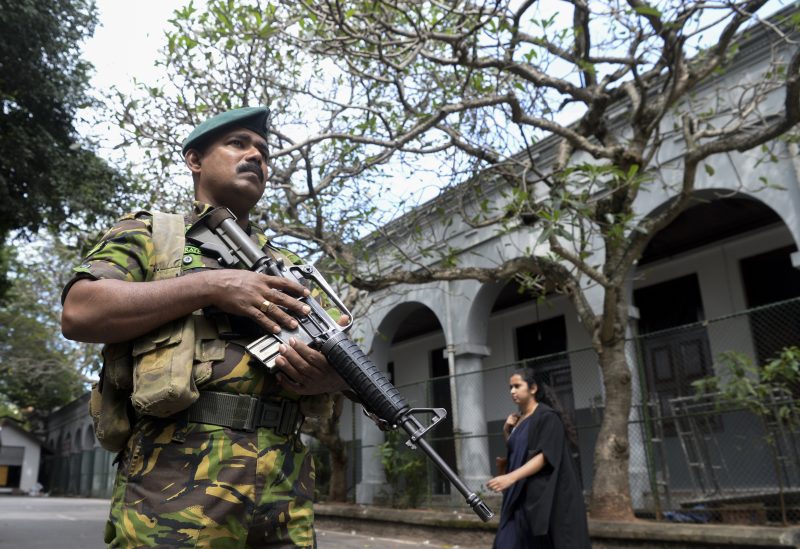Sri Lanka ready for landmark hanging of drug convicts: minister
Criminals in Sri Lanka are regularly given death sentences for murder, rape and drug-related crimes but their punishments have been commuted to life (LAKRUWAN WANNIARACHCHI)
Colombo (AFP) – Sri Lanka is ready to execute five drug convicts and end its 42-year capital punishment moratorium once President Maithripala Sirisena signs the death warrants and a hangman is appointed, officials said Tuesday.
Sirisena announced last year a tougher line on spiralling narcotics-related crime including executions for repeat drug offenders, inspired by a similar crackdown in the Philippines.
The country’s justice minister told parliament Tuesday that legal and administrative procedures for the five condemned Sri Lankans were completed last month, paving the way for the first hangings since 1976.
“We have already complied with the president’s request to restart capital punishment,” Thalatha Athukorale said.
Five names had been sent to the president between October 12 and the end of January, but Sirisena was yet to sign the warrants and fix the execution dates, Athukorale added. There was no immediate comment from Sirisena’s office on the cases.
Following a visit to the Philippines last month, Sirisena reaffirmed his plans to replicate his counterpart Rodrigo Duterte’s “success” in dealing with illegal drugs.
Sirisena praised the “decisive action” of Duterte who has offered anti-narcotics help to Sri Lanka.
Duterte ran on a law-and-order platform that included promises to kill thousands of people involved in the drug trade, even officials.
“Even though I have not implemented some of the decisions of President Duterte, I will not bow to international non-governmental (rights) organisations and change my decision on death penalty for drug offences,” Sirisena said last month.
Athukorale said there were 18 drug convicts who would qualify under Sirisena’s guidelines to be hanged out of 376 convicts on death row.
But prisons spokesman Thushara Upuldeniya said authorities were still trying to fill a vacancy for an executioner.
Light work and a salary of 35,000 rupees ($200) a month was offered in advertisements placed last year, but no suitable candidate came forward, he said.
“Technically, we don’t have a hangman right now, but if the need arises, we should be able to get one fairly quickly,” Upuldeniya told AFP.
While Sri Lanka’s last execution was more than four decades ago, an executioner functioned until his retirement in 2014. Three replacements since have quit after short stints at the unused gallows.
Criminals are regularly given death sentences for murder, rape and drug-related crimes but their punishments have been commuted to life.
International rights groups have urged Sri Lanka not to revive capital punishment.
Disclaimer: This story is published from a syndicated feed. Siliconeer does not assume any liability for the above story. Validity of the above story is for 7 Days from original date of publishing. Content copyright AFP.


